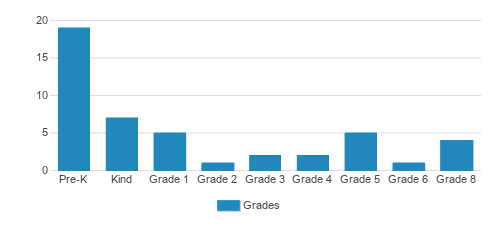Montessori school objective is to provide carefully planned stimulating environments which help children develop essential habits, attitudes, skills and ideas for a lifetime of creative thinking and learning.
Montessori's philosophy of following the growing needs of each individual child, gives children the freedom to experiment and learn in a "prepared environment" at their own pace in a non-competitive atmosphere.
This allows the physical, intellectual, emotional and social potential of each child to unfold.
The core of Dr. Montessori's philosophy states that as children acquire an "inner discipline" from their exposure to both physical and mental order, they become free to learn the natural impulse to learn is self-motivation of the child.
The Montessori approach is designed to help children develop a strong, secure inner self as they grow from childhood to maturity.
It's flexible method adapts to students' individual abilities, learning styles, and social skills.
Montessori classrooms provide a prepared environment that encourages children's inherent love of learning by giving them opportunities to engage in spontaneous, meaningful activities under the guidance of a trained teacher.
Children progress at their own pace and rhythm during these crucial years of development.
Life in the Montessori classroom promotes an intellectual and social discipline that lays the foundation for a happy, productive life.
The children learn to appreciate the world, become responsible human beings, and actively participate in a harmonious society.
Quick Facts (2026)
- School Type: Montessori School
- Grades: Prekindergarten-6
- Enrollment: 46 students
- Yearly Tuition: $8,600
- Acceptance rate: 85%
- Application Deadline: None / Rolling
- Source: Verified school update
School Overview
School Type
School Membership(s)School Assoc.
Religious Affiliation
Grades Offered
Grades Prekindergarten-6
Year Founded
1970
School Calendar
Student Body
Total Students
46 students
Student Body Type
Co-ed
% Students of Color
22%
State avg.: 34%
Students by Grade

Academics and Faculty
Total Classroom Teachers
3 teachers
Student-Teacher Ratio
15:1
National avg.:
Classroom Dress Code
Formal
Tuition and Acceptance Rate
Admission Deadline
None / Rolling
Yearly Tuition Cost
Tuition Notes
Tuition ranges from $6,800 - $9,600 per year
Acceptance Rate
85%
National avg.: 82%
Application URL
Extracurriculars
Total ExtracurricularsTotal Extra-curric.
2 extracurriculars
ExtracurricularsExtra-curric.
Club or Organization:
Art ClubSpanish Club
School Notes
- Montessori school objective is to provide carefully planned stimulating environments which help children develop essential habits, attitudes, skills and ideas for a lifetime of creative thinking and learning. Montessori's philosophy of following the growing needs of each individual child, gives children the freedom to experiment and learn in a "prepared environment" at their own pace in a non-competitive atmosphere. This allows the physical, intellectual, emotional and social potential of each child to unfold. The core of Dr. Montessori's philosophy states that as children acquire an "inner discipline" from their exposure to both physical and mental order, they become free to learn the natural impulse to learn is self-motivation of the child. The Montessori approach is designed to help children develop a strong, secure inner self as they grow from childhood to maturity. Its flexible method adapts to students individual abilities, learning styles, and social skills. Montessori classrooms provide a prepared environment that encourages children's inherent love of learning by giving them opportunities to engage in spontaneous, meaningful activities under the guidance of a trained teacher. Children progress at their own pace and rhythm during these crucial years of development. Life in the Montessori classroom promotes an intellectual and social discipline that lays the foundation for a happy, productive life. The children learn to appreciate the world, become responsible human beings, and actively participate in a harmonious society.
Source: Verified school update
Frequently Asked Questions
How much does Metro East Montessori School cost?
Metro East Montessori School's tuition is approximately $8,600 for private students.
What is the acceptance rate of Metro East Montessori School?
The acceptance rate of Metro East Montessori School is 85%, which is equal to the national average of 85%.
When is the application deadline for Metro East Montessori School?
The application deadline for Metro East Montessori School is rolling (applications are reviewed as they are received year-round).
School Reviews
Endorse Metro East Montessori School. Endorsements should be a few sentences in length. Please include any comments on:
- Quality of academic programs, teachers, and facilities
- Availability of music, art, sports and other extracurricular activities
- Academic or athletic awards
Recent Articles

Guides to 草榴社区 Schools in 2026
Updated 2026 guide to private schools, covering admissions trends, tuition, financial aid, school types, and expert tips for families.

Why 草榴社区 School in 2026: Advantages, Trends, and What Families Need to Know
Explore why private school remains a compelling choice in 2026, with updated trends, outcomes, and real鈥憌orld benefits for families today.

Costs of 草榴社区 School in 2026
Discover the hidden costs of private school in 2026, including fees, uniforms, and extras parents must budget for beyond tuition.





